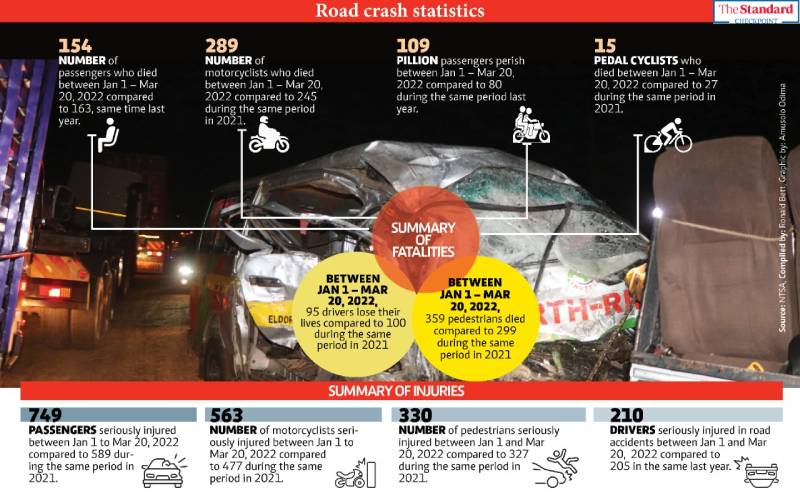×
The Standard e-Paper
Join Thousands Daily

United Kingdom - 5.1, Germany - 6.8, Australia - 7.3 and the United States - 12.9. No, these are not the increases in the Gross National Product of these counties but rather the number of traffic fatalities per 100,000 vehicles. Shocking.